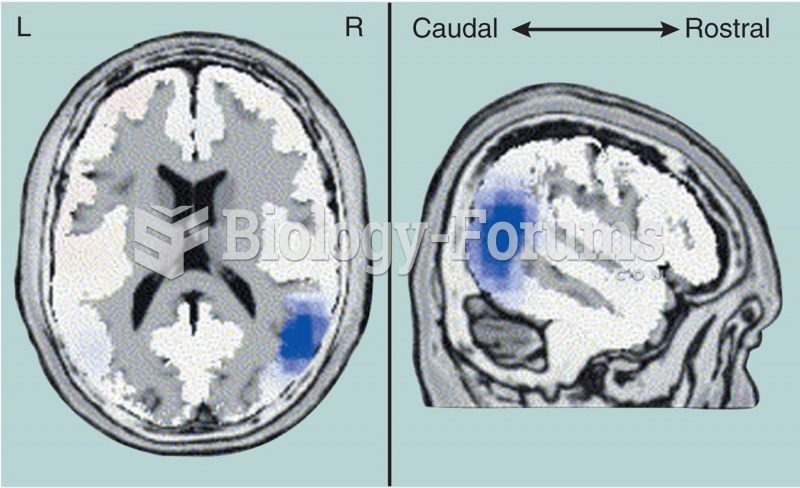This topic contains a solution. Click here to go to the answer
|
|
|
Did you know?
All patients with hyperparathyroidism will develop osteoporosis. The parathyroid glands maintain blood calcium within the normal range. All patients with this disease will continue to lose calcium from their bones every day, and there is no way to prevent the development of osteoporosis as a result.
Did you know?
By definition, when a medication is administered intravenously, its bioavailability is 100%.
Did you know?
Bacteria have been found alive in a lake buried one half mile under ice in Antarctica.
Did you know?
The U.S. Preventive Services Task Force recommends that all women age 65 years of age or older should be screened with bone densitometry.
Did you know?
Russia has the highest death rate from cardiovascular disease followed by the Ukraine, Romania, Hungary, and Poland.
 Critical thinking involves analysis in which the nurse examines patient data available from a variet
Critical thinking involves analysis in which the nurse examines patient data available from a variet
 The nurse needs to inform the patient with impaired vision when a touch is to occur and ask permissi
The nurse needs to inform the patient with impaired vision when a touch is to occur and ask permissi
 Testing Visual Fields by Confrontation: The nurse and patient should be approximately at an eye to e
Testing Visual Fields by Confrontation: The nurse and patient should be approximately at an eye to e




